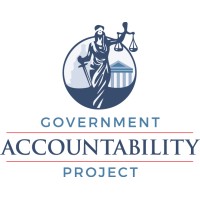University of Toronto School of Law is inviting submissions for its Twenty-Fifth Annual Conference.
About LCH
The Association for the Study of Law, Culture, and the Humanities (LCH) is a global, interdisciplinary academic society dedicated to fostering humanities-oriented legal scholarship and teaching. We bring together scholars from a wide variety of disciplines, career stages, and geographical regions.
LCH is deeply committed to creating equitable and inclusive spaces that sustain and promote colleagues whose work embodies and forwards anti-subordination principles and practices.
Founded in 1997, LCH convenes annual meetings and sponsors a quarterly, peer-reviewed journal, Law, Culture, and the Humanities. At our annual meetings, scholars hailing from across the globe engage in conversations about law from a wide variety of humanities-oriented disciplinary perspectives.
We confer a number of prizes to recognize the best scholarship in our field. To support and promote younger law and humanities scholars, we also organize an annual Graduate Student Workshop, which provides graduate students with an intimate venue in which to discuss their research projects with senior scholars in the field.
About the Call for Papers
University of Toronto School of Law is inviting submissions for its Twenty-Fifth Annual Conference.
Themes
The 2023 LCH conference considers topics broadly related to law and legal studies. In addition, our theme this year is “Absence, the Present and the Past.”
The last few years have been marked by palpable absence: the absence of face-to-face encounters shared meals and shared lives; the absence of in-person study, of spontaneous meetings in hallways and coffee shops — a seemingly interminable stretch of missed experiences and encounters.
As we come back together and restart our offline lives, we carry the absences and missed opportunities of the recent pandemic with us. Absence signals both a void and a clearing: a call for us to be present once more to ourselves and each other.
In some instances, we know what we have missed; at other times, we find ourselves surprised and undone by what we have not realized has been missing all this time. To dwell on this absence is not only to live in a state of lament or regret; it is also to imagine the possibilities that arise when we attend closely to what has been missing.
In this spirit of absence as loss and potential, we invite papers from across the disciplines that consider the law in relation to absence. How might we conceive of law in the absence of justice, or imagine jurisprudence in the absence of precedent?
What juridical potential arises in a moment of crisis and deprivation? What does law miss in entering these moments—and how might law’s missed encounters bring into relief the gaps in the interstices of contemporary culture? What does law miss—and what does it engage—when it serves as a source of social meaning and remediation?
Submission Guidelines
We encourage the submission of fully constituted panels, as well as panels that reimagine or experiment with models for academic presentation, such as roundtables, author meets reader sessions, collaborative presentations, multi-panel streams, etc. Individual proposals should include a title and an abstract of no more than 250 words, along with 2 keywords from the list below.
Please note that online presenters should organize a full panel (we will not be accepting individual papers for online presentations this year) and that, though we traditionally accept most papers, we may need to limit the number of online panels we accept, depending on demand.
Panels, whether virtual or in-person, should include three papers (or, exceptionally, four papers). Please specify a title and designate a chair for your panel. The panel chair may also be a panel presenter. It is not necessary to write an abstract or proposal for the panel itself.
To indicate your pre-constituted panel, roundtable, or stream, please ensure that individual registrants provide the name of the panel and the chair in their individual submissions on the registration site. All panel, roundtable, or stream participants must make an individual submission on the registration site. When submitting a proposal, we also ask that registrants identify two keywords to help us align sessions with each other.
Mode
The twenty-fifth annual conference will emphasize the LCH tradition of in-person conversation. While we encourage participants to join us in Toronto, we recognize that in-person attendance may be prohibitive for some. To that end, we will also accept the submission of virtual panels.
Since we will not be providing technical support for virtual participants, panel chairs will be responsible for providing Zoom links that will be listed in the program. All plenary sessions will be available streaming online as well as in person.
How to Submit?
Submissions may be made through the website the link of which is given below.
Submission Deadline
- Submission Deadline: March 17, 2023
- Dates of Conference: June 22-23, 2023
Contact Information
In case of any query drop a mail at lch@lawculturehumanities.com


